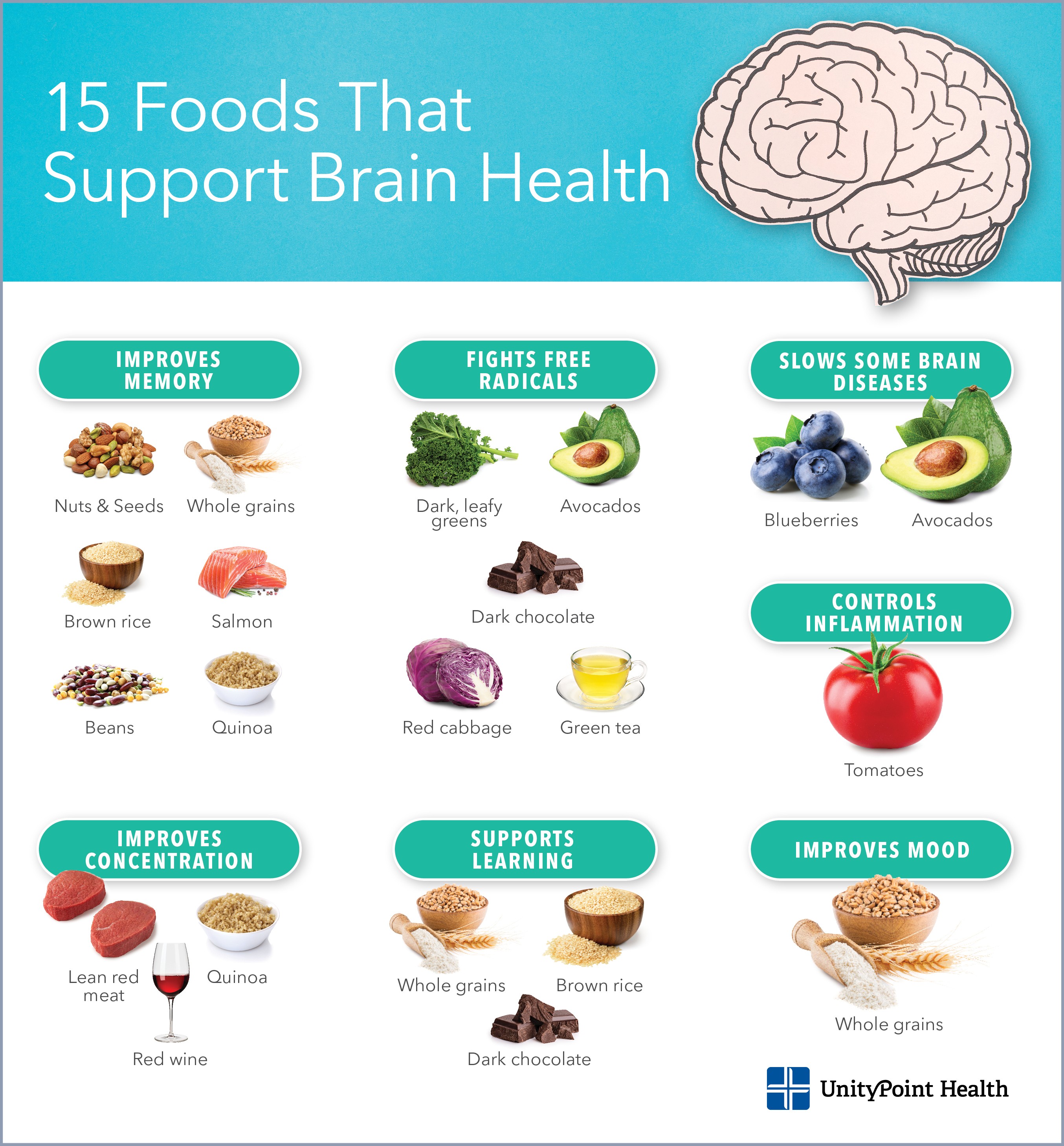Eating a balanced diet is crucial for overall well-being, and it plays a significant role in maintaining and enhancing cognitive functions, particularly memory. While diet is not the only factor influencing memory and brain health – genetics, stress levels, and mental exercises also contribute – incorporating specific foods known for their brain-boosting properties can be a powerful strategy. Let’s explore some of the top “Foods That Improve Memory” and how they contribute to a sharper mind.
Nuts and Seeds
Nuts and seeds, including walnuts, almonds, peanuts, sunflower seeds, and pumpkin seeds, are excellent foods to improve memory due to their rich content of protein and omega fatty acids. Protein is a vital component of brain tissue, second only to water, making protein-rich foods essential for brain nourishment.
Proteins facilitate communication between neurons in the brain through neurotransmitters, which are derived from amino acids. Nuts and seeds are packed with these amino acids, along with omega-3 and omega-6 fatty acids. These essential fats, which our bodies cannot produce, are crucial for building brain cells, maintaining normal brain function, and supporting the formation of new memories by creating synapses or connections within the brain.
 Walnuts, almonds, and peanuts are brain foods high in protein and omega fatty acids.
Walnuts, almonds, and peanuts are brain foods high in protein and omega fatty acids.
Salmon
Oily fish like salmon is another powerhouse food that improves memory. Salmon is abundant in omega-3 fatty acids, especially DHA, a fundamental building block of the brain that is known to enhance brain function. Studies have indicated that a higher intake of omega-3s can lead to improved memory in individuals with Alzheimer’s. Incorporating salmon into your diet can be a delicious and effective way to support your cognitive health.
Beans
Beans are a versatile and nutritious food group that contributes to improved memory through their high content of fiber, B vitamins, and omega fatty acids. Fiber plays a crucial role in regulating blood sugar levels, promoting a gradual release of glucose which helps maintain consistent energy levels for better concentration and memory. B vitamins, found abundantly in beans, are essential for converting homocysteine, a chemical compound, into other vital brain chemicals such as acetylcholine, which is critical for the formation of new memories. And as mentioned before, omega fatty acids are indispensable for overall brain development and function.
Blueberries
Blueberries and other dark berries stand out as potent foods that improve memory due to their high concentration of antioxidants. These antioxidants act as protective agents against free radicals, unstable molecules that can damage cells and contribute to aging and neurodegenerative diseases. Blueberries help combat degenerative changes in the brain and enhance neural functioning and communication, making them a valuable addition to a memory-boosting diet.
Dark and Leafy Greens
Dark and leafy green vegetables like kale, spinach, and broccoli are nutritional powerhouses, loaded with vitamin E and folate. Vitamin E is a powerful antioxidant that helps protect cell membranes, including brain cells, from damage caused by free radicals. Folate, another key nutrient in dark greens, is crucial for normal brain development and function. Including these greens in your diet is a proactive step towards preserving cognitive health and improving memory.
Lean Red Meat
Lean red meats, such as sirloin steak, are beneficial foods to improve memory because they are rich in iron. Iron plays a vital role in the production of neurotransmitters, the chemical messengers in the brain, and it is essential for the transport of oxygen by red blood cells throughout the body, including the brain. Adequate oxygen supply to the brain is crucial for maintaining attention and concentration, which in turn supports learning and memory processes.
Avocados
Avocados, with their creamy texture and rich flavor, are packed with omega fatty acids and vitamin E, making them excellent foods that improve memory. Omega fatty acids are essential for cell growth and brain development, while vitamin E provides crucial protection to cell membranes from damaging free radicals. Vitamin E’s protective properties may also help slow down the progression of degenerative diseases like Alzheimer’s by supporting the maintenance and repair of brain cells.
Tomatoes
Tomatoes are a readily available source of lycopene, a powerful antioxidant. Lycopene in tomatoes helps regulate genes that influence inflammation and cell growth within the brain. By mitigating inflammation and supporting healthy cell growth, tomatoes contribute to a brain-friendly diet that can help improve memory and cognitive function.
Whole Grains
Whole grains are fundamental foods that improve memory due to their complex carbohydrates, omega-3s, and B vitamins, all of which support optimal brain function. Complex carbohydrates provide a steady and sustained release of energy to the brain, which is essential for regulating mood, behavior, and supporting learning and memory. Including whole grains in your diet ensures a consistent fuel supply for your brain to function at its best.
Red Cabbage
Red cabbage stands out as an antioxidant-rich vegetable that helps protect against free radicals. These harmful molecules can attack DNA, proteins, and carbohydrates within the body, contributing to aging and potentially increasing the risk of neurodegenerative conditions like Alzheimer’s disease. The antioxidants in red cabbage help neutralize free radicals, supporting overall brain health and potentially improving memory over time.
Brown Rice
Brown rice is a nutritious grain packed with B vitamins, which are crucial for converting homocysteine into important brain chemicals. These brain chemicals are essential for learning and the formation of new memories. By supporting these key neurological processes, brown rice contributes to a diet that promotes memory enhancement and cognitive function.
Green Tea
Green tea is renowned for its high concentration of antioxidants, which play a vital role in protecting the body against free radicals. These unstable molecules can damage cells and contribute to various health issues. By neutralizing free radicals, green tea supports brain health and may contribute to improved memory and cognitive function.
Red Wine and Grapes
Red wine, in moderation, and grapes contain resveratrol, a beneficial antioxidant. Resveratrol is known to improve blood flow to the brain, which is crucial for delivering oxygen and nutrients necessary for optimal brain function, including attention and concentration. While red wine should be consumed in moderation, enjoying grapes can be another healthy way to obtain resveratrol and support brain health.
Dark Chocolate
Dark chocolate is not only a delicious treat but also a source of antioxidants that protect against free radicals. These antioxidants also support learning and cognitive functions of the brain, which may help delay the effects of cognitive decline. Choosing dark chocolate as an occasional treat can be a palatable way to incorporate foods that improve memory into your diet.
Quinoa
Quinoa is a nutritional powerhouse high in complex carbohydrates, iron, and B vitamins. The brain utilizes a significant portion of the body’s carbohydrate intake for energy, highlighting the importance of complex carbohydrates as brain fuel. Iron in quinoa aids in oxygenating the blood, which is vital for attention and concentration, while B vitamins are essential for creating brain chemicals crucial for memory formation. Quinoa provides a comprehensive nutritional profile that supports overall brain health and memory improvement.
By incorporating these “foods that improve memory” into your daily diet, you can take proactive steps towards enhancing your cognitive function and supporting long-term brain health. Remember that a balanced and varied diet, combined with a healthy lifestyle, is key to maintaining a sharp mind and overall well-being.
